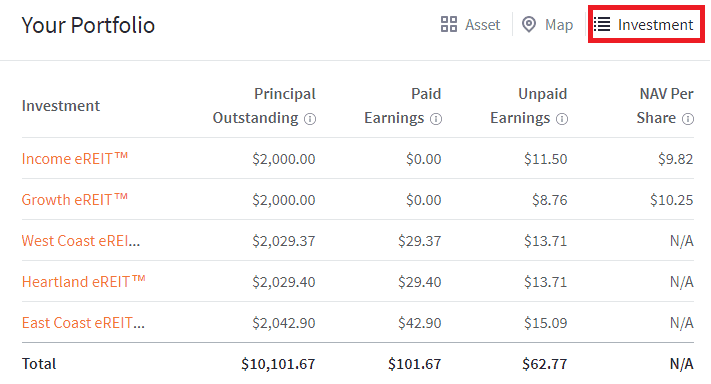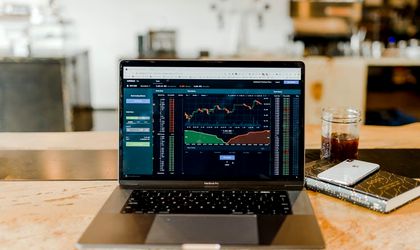
Currency risk
When buying international stocks, investors should be aware of currency risk. This risk is often referred to as foreign-exchange or exchange-rate risk and measures the fluctuations in the value of one country's currency relative to another. Investors should be aware that currency risk can have a significant impact on portfolio performance.
Foreign investments can be more vulnerable to currency risk than domestic investments, but they may also present a unique opportunity. They are more likely to grow faster and offer higher upside potential. Investors have the option to invest in currency-hedged funds to neutralize this risk. These funds can be used to offset currency risk and allow investors to invest in stocks specific to a country or region.
Geopolitical danger
It doesn't matter if your experience is extensive or if you are just beginning to invest, you need to be aware of geopolitical danger in international stocks. The stock market is affected by geopolitical tensions. However, other factors can affect geopolitical risk. The risk of nuclear war or political instability are two examples.

Investing in international stocks comes with many risks. In particular, geopolitical risks can have a major impact on the value of your investments. If your country passes laws that ban imports from certain places, you could lose access to your investments. Geopolitical risks may also be a factor in civil unrest and conflict in some countries.
Economic risk
As investors, it's important to understand the risks that come with international stocks. These include currency fluctuations that can work in your favour but also threaten your investment. You're not just investing in individuals or companies in foreign countries, but also in the economy of those countries, which can be affected if there are political or economic changes. International stock markets may not offer as much protection as domestic stocks exchanges, and you might be limited by changes in government.
International stocks are more vulnerable to currency fluctuations and political instability. These factors can influence investor attitudes and outlooks. This can lead to significant fluctuations in stock prices. Country risk is another important element that can impact investor confidence, market sentiment, and overall market sentiment. It can occur when an individual country loses its government or is subject to social unrest and war.
Sector exposure
An investment portfolio can include international stocks. The world's economies are growing rapidly, and there is a new global middle class emerging. Most of the world's economic growth will take place outside of the United States, which means that international stocks may provide investors with higher returns. International stocks are more accessible than ever and can offer higher returns.

In the past, U.S. stocks have fared better than international stocks over many years. The recent outperformance has helped U.S. stocks, but it is likely that international stocks will take the lead once again. It is not easy to time stock rotations. It is possible to miss out on significant gains in international stocks if your exposure is too low.
Political risk
Investors could be exposed to volatility from the high political risk in international stocks. It can impact any investment that relies upon foreign markets, no matter if it is a global or regional company. Even the slightest changes in government can have a significant impact on a company's market value. This risk can be minimized by several strategies. One such strategy is to diversify. Diversification allows investors to spread their investments across many types of companies.
Political risk in international stocks refers to the possibility that political changes or the political landscape could negatively impact your investment. This risk could arise from any number of factors, such as a change or addition to the party leadership or changes to the legislation and policy. Economic instability can also make it difficult or impossible for investors to withdraw their capital. Domestic investments that are dependent on foreign markets face political risk.
FAQ
Why are marketable securities Important?
An investment company's main goal is to generate income through investments. This is done by investing in different types of financial instruments, such as bonds and stocks. These securities are attractive because they have certain attributes that make them appealing to investors. They may be safe because they are backed with the full faith of the issuer.
A security's "marketability" is its most important attribute. This refers primarily to whether the security can be traded on a stock exchange. It is not possible to buy or sell securities that are not marketable. You must obtain them through a broker who charges you a commission.
Marketable securities can be government or corporate bonds, preferred and common stocks as well as convertible debentures, convertible and ordinary debentures, unit and real estate trusts, money markets funds and exchange traded funds.
These securities are often invested by investment companies because they have higher profits than investing in more risky securities, such as shares (equities).
What is a REIT?
An entity called a real estate investment trust (REIT), is one that holds income-producing properties like apartment buildings, shopping centers and office buildings. They are publicly traded companies which pay dividends to shareholders rather than corporate taxes.
They are similar to a corporation, except that they only own property rather than manufacturing goods.
How does Inflation affect the Stock Market?
The stock market is affected by inflation because investors need to pay for goods and services with dollars that are worth less each year. As prices rise, stocks fall. That's why you should always buy shares when they're cheap.
Statistics
- "If all of your money's in one stock, you could potentially lose 50% of it overnight," Moore says. (nerdwallet.com)
- US resident who opens a new IBKR Pro individual or joint account receives a 0.25% rate reduction on margin loans. (nerdwallet.com)
- Our focus on Main Street investors reflects the fact that American households own $38 trillion worth of equities, more than 59 percent of the U.S. equity market either directly or indirectly through mutual funds, retirement accounts, and other investments. (sec.gov)
- The S&P 500 has grown about 10.5% per year since its establishment in the 1920s. (investopedia.com)
External Links
How To
How to Invest Online in Stock Market
Investing in stocks is one way to make money in the stock market. There are many ways you can invest in stock markets, including mutual funds and exchange-traded fonds (ETFs), as well as hedge funds. The best investment strategy depends on your investment goals, risk tolerance, personal investment style, overall market knowledge, and financial goals.
First, you need to understand how the stock exchange works in order to succeed. This includes understanding the different investment options, their risks and the potential benefits. Once you have a clear understanding of what you want from your investment portfolio you can begin to look at the best type of investment for you.
There are three main types of investments: equity and fixed income. Equity is the ownership of shares in companies. Fixed income refers debt instruments like bonds, treasury bill and other securities. Alternatives include commodities, currencies and real estate. Venture capital is also available. Each category has its own pros and cons, so it's up to you to decide which one is right for you.
You have two options once you decide what type of investment is right for you. One strategy is called "buy-and-hold." You purchase a portion of the security and don't let go until you die or retire. The second strategy is "diversification". Diversification means buying securities from different classes. If you buy 10% each of Apple, Microsoft and General Motors, then you can diversify into three different industries. Multiple investments give you more exposure in different areas of the economy. You are able to shield yourself from losses in one sector by continuing to own an investment in another.
Another important aspect of investing is risk management. You can control the volatility of your portfolio through risk management. You could choose a low risk fund if you're willing to take on only 1% of the risk. If you are willing and able to accept a 5%-risk, you can choose a more risky fund.
Your money management skills are the last step to becoming a successful investment investor. A plan is essential to managing your money. A good plan should include your short-term, medium and long-term goals. Retirement planning is also included. Sticking to your plan is key! Don't get distracted with market fluctuations. Stick to your plan and watch your wealth grow.